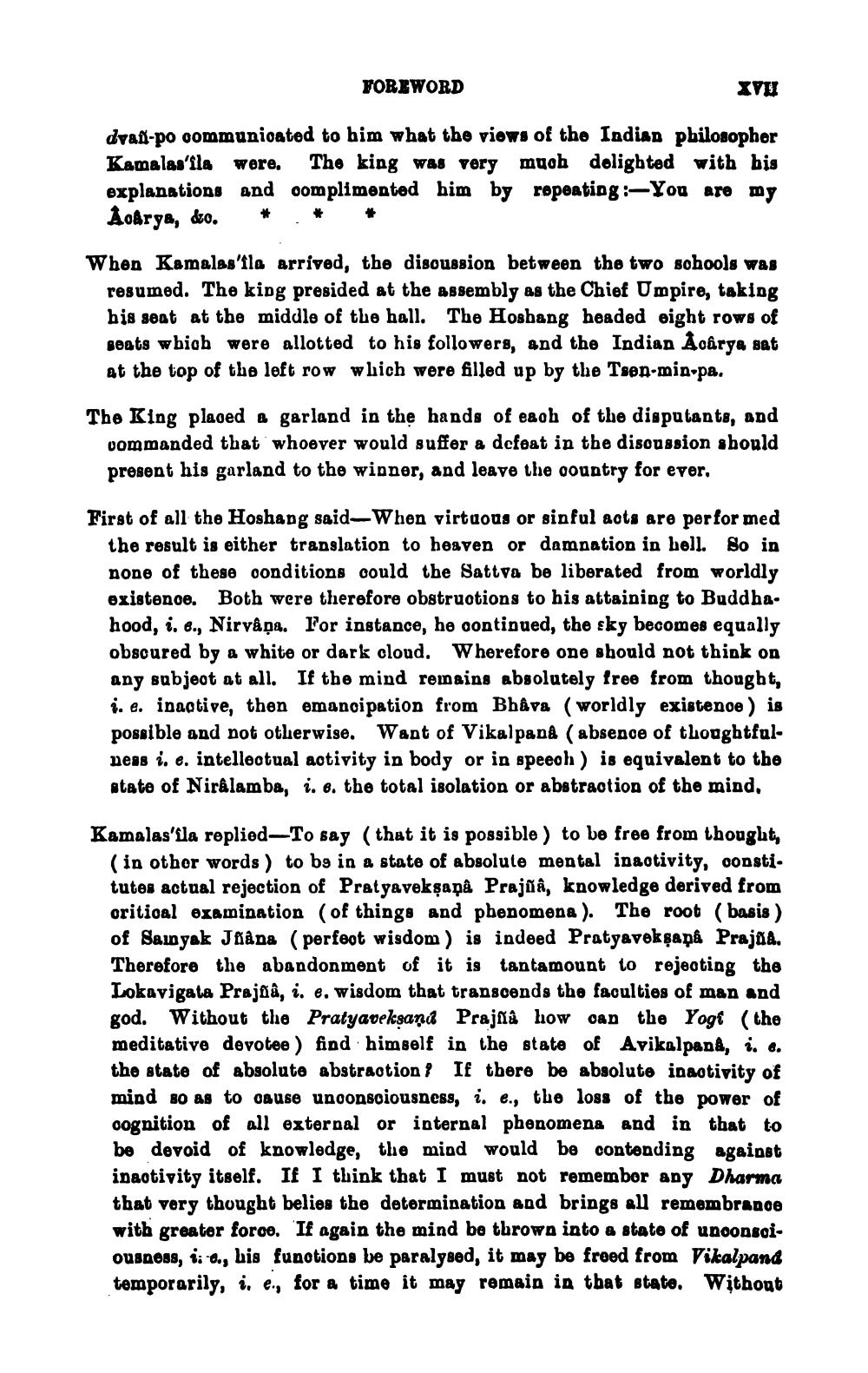________________
FOREWORD
XVII
dvad-po communioated to him what the viows of the Indian philosopher Kamalas'ils were. The king was very much dolighted with his explanations and complimented him by ropeating:-You are my Acârga, &o. * . *
When Kamalas'ila arrived, the discussion between the two schools was
resumed. The king presided at the assembly as the Chief Umpire, taking his sent at the middle of the hall. The Hoshang headed eight rows of seats wbiob were allotted to his followers, and the Indian Acarya sat at the top of the left row which were filled up by the Tsen-min-pa.
The King placed & garland in the hands of each of the disputants, and
commanded that whoever would suffer a defeat in the disoussion should present his garland to the winner, and leave the country for ever,
First of all the Hoshang said-When virtuous or sinful acts are performed
the result is either translation to heaven or damnation in bell. So in none of these conditions could the Sattva be liberated from worldly existence. Both were therefore obstructions to his attaining to Buddha. hood, i. e., Nirvåņu. For instance, he continued, the sky becomes equally obscured by a white or dark cloud. Wherefore one should not think on any subject at all. If the mind remains absolutely free from thought, i. e. inactive, then emancipation from Bhava (worldly existenoe) is possible and not otherwise. Want of Vikalpana (absence of thoughtfulness i. e. intellectual activity in body or in speech ) is equivalent to the state of Niralamba, i. 6. the total isolation or abstraction of the mind,
Kamalas'ila replied-To say (that it is possible) to be free from thought,
(in other words ) to be in a state of absolute mental inaotivity, consti. tutes actual rejection of Pratyavekşapà Prajóâ, knowledge derived from oritioal examination of things and phenomena ). The root (basis) of Sanyak Jhana (perfoot wisdom ) is indeed Pratyavek şapk Prajaa.
efore the abandonment of it is tantamount to rejecting the Lokavigata Prajiâ, i. e, wisdom that transcends the faculties of man and god. Without the Pratyaveksanı Prajsa low can the Yogi (the meditative devotee) find himself in the state of Avikalpana, i. e. the state of absolute abstraction? If there be absolute inactivity of mind so as to cause unoonsciousness, i. e., the loss of the power of oognition of all external or internal phenomena and in that to be devoid of knowledge, the mind would be contending against inactivity itself. If I think that I must not remembor any Dharma that very thought belies the determination and brings all remembrance with greater force. If again the mind be thrown into a state of unconsoiougness, i: e., his function, be paralysed, it may be freed from Vikalpand temporarily, i. e. for a time it may remain in that state. Without




